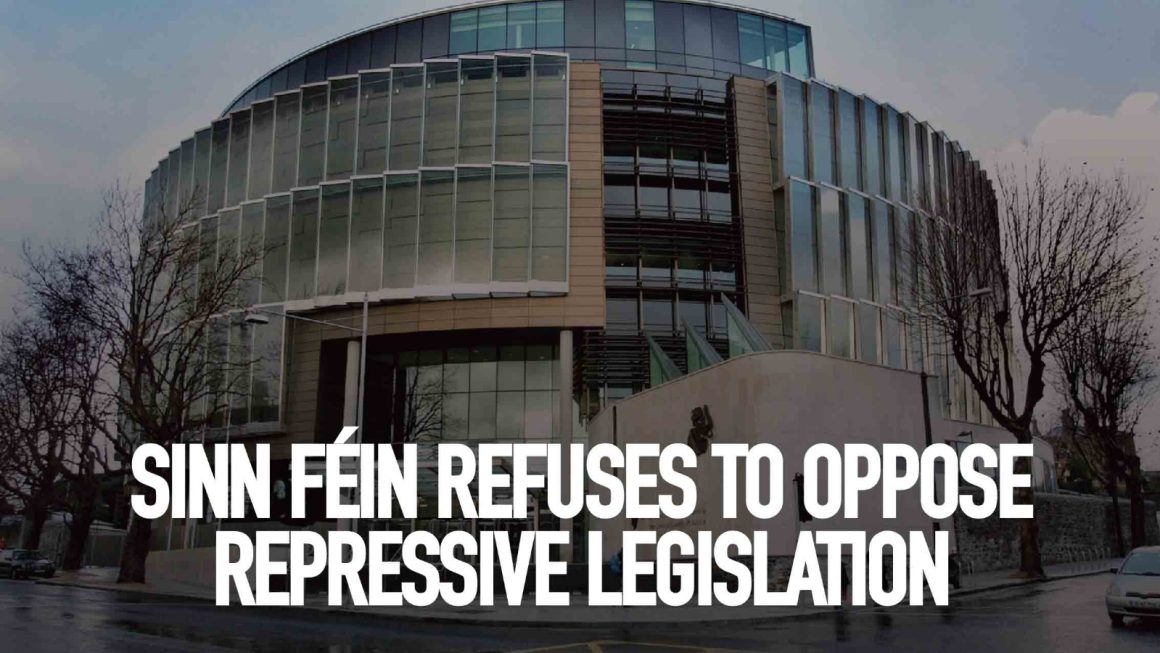By Mick Barry and Finghín Kelly
The Offences Against the State Act was renewed by the Dáil on 23 June on a vote of 86-7.
Sinn Féin deputies left the chamber immediately before the vote and did not participate or vote against it. The Criminal Justice Act was passed by a similar margin with the same approach taken by Sinn Féin. The only seven deputies who voted against were all from the left – Solidarity and Socialist Party TD Mick Barry, four PBP TDs and two left Independents.
Oppose nonjury courts
The Offences Against the State Act provides the legal basis for the nonjury Special Criminal Court. It undermines the right to trial by jury and the presumption of innocence. It is a substantial attack on the right to a fair trial. The United Nations Human Rights Council opposes this court and argued for its abolition as recently as last year.
It is opposed also by Amnesty International and the Irish Council of Civil Liberties (ICCL). The ICCL recently stated that “the Special Criminal Court continues to represent the biggest single denial of fair trial rights in our legal system.”
Those in favour of draconian laws cite the potential for jury intimidation by paramilitary organisations and organised crime.
The issue of jury intimidation is a serious one. However, despite having these powers rubber stamped every year since 1998 there has never been a real investigation into other ways to protect juries while upholding the right to trial by jury, e.g. the use of video links.
Why won’t Sinn Féin take a stand?
Sinn Féin’s justification for absenting themselves from the vote was to say that there is currently a review taking place into the legislation. However, this was a decision taken under pressure from Fianna Fáil and Fine Gael in the context of the Dublin Bay South by-election.
If Sinn Féin back down in this way on the issue of defending civil liberties, how can they be relied upon to defend their public positions on other issues such as housing justice and combatting social inequality?
Their abstention was all the more wrong given that the State has already been granted extreme emergency powers in the context of the pandemic – powers that have been used to harass young people across the state particularly in working-class communities. The Covid emergency powers have also served to create an atmosphere whereby more than 300 Gardaí were recently mobilised to break picket lines at Debenhams.
Growing repression
Garda powers are now set to be added to with the Garda Síochana (Powers) Bill that aims to give sweeping new powers of arrest and search including the threat of five-year jail sentences and/or €30,000 fines for refusing to disclose the password for a phone.
Sinn Féin’s decision to buckle on the 23 June votes will not make it easier to push back against new repressive legislation of this kind.
Fianna Fáil and Fine Gael make no apologies for supporting repressive legislation. Working-class people need representatives who equally make no apologies for opposing it and who campaign vigorously and consistently on the issue and oppose the strengthening of the capitalist state, an institution of the bosses against the working-class majority.












